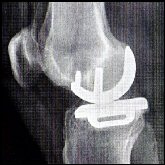“Why am I doing this?” That’s the question dominating a President’s Advisory Committee board meeting (PAC). None of the members—all business owners—intend to give or sell their business to their children. Instead, in a reversal of traditional social norms, all of them plan to use their wealth to empower their children on whatever paths the kids happen to choose.
The members range in age from early forties to mid-fifties. Each of them has done very well. Their children range in age from the early grades to out-of-the-nest adults.
.
Not Surprising
These business owners think about their children—and their future—a lot. They have two overriding concerns:
- Finding the time to spend with their kids while they’re growing, despite the demands of their business
- Keeping their children grounded while living in a household that enjoys unusual income and wealth.
.
If you’re a business owner and a parent, this probably resonates with you, and you likely fall into one of three distinctly different categories:
- You share the view of this PAC Board and want to support your children’s dreams no matter where it leads them.
- You quietly hope that at least one of your children takes an interest in your business and emerges as your successor.
- You proactively expose your business to your children to your business from an early age in the context of “One day, this will all be yours.”
.
.
Experts Agree
Regardless of your outlook, experts agree that young adults should begin their careers outside the family business. An Inc. Magazine article quotes family business consultant Mark Green, Ph.D. “After they’re done with their college degrees, they should go work somewhere else at least a year or two. Three, five, seven years is even better. That really adds credibility if they do come back.”
If you’re determined to transfer your business to your children, a New York Times article offers this important advice:
- Make sure the business and industry are viable
- Have your children work outside the business
- Make sure your children don’t start at a higher level inside the company than they had outside.
- Make sure you have something to go to when it’s time to move on.
- Once you’ve transferred control, stay out of the way
.
♥
.
This article is adapted from NEWS FROM HEARTLAND – The Journal of the Heartland Angels.
You can follow Nick on Twitter, Facebook, or LinkedIn, and visit the PAC website. You can also read Nick’s book ExpressWay to GrowthTM, available on Amazon.
He can be reached at NickA@PresidentsAdvisoryCommittee.com
Chicago Venture Magazine is a publication of Nathaniel Press www.ChicagoVentureMagazine.com Comments and re-posts in full or in part are welcomed and encouraged if accompanied by attribution and a web link. This is not investment advice. We do not guarantee accuracy. It’s not our fault if you lose money.
.Copyright © 2014, 2015 John Jonelis – All Rights Reserved
.
.








































































































































































